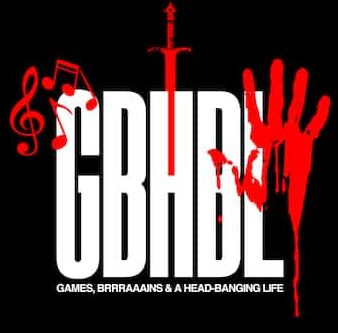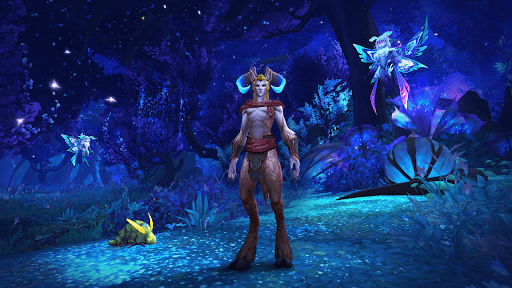Creating Game Characters for Different Genres
Game characters are essential for video games. They make the game world alive, interact with the player and other characters, and drive the game’s story and gameplay. Game characters can also affect how players enjoy a game. Therefore, creating game characters that are memorable, believable, and engaging is important for game developers and designers.
In this article, we will show how game characters are created for different genres of video games. We will give some examples of successful game characters from various genres and explain what makes them work well for their games. We will also give some tips and best practices for designing game characters that fit different genres. Whether you are a game development enthusiast or a character design agency, you will definitely find some food for your mind.
Understanding Different Genres
Video games are categorized into different genres based on their gameplay mechanics, storylines, and other defining elements. Here are some brief explanations of the most common video game genres, along with examples of popular games in each genre and their unique characteristics:
- Action games – Action games are fast-paced games that require quick reflexes and good hand-eye coordination. They often feature intense combat and involve a lot of physical movement. Examples of popular action games include Assassin’s Creed, Grand Theft Auto, and Call of Duty.
- Role-Playing Games (RPGs) – RPGs are games that allow players to take on the role of a character and guide their development throughout the game. They often involve a lot of storytelling, exploration, and decision-making. Examples of popular RPGs include The Elder Scrolls series, Fallout, and Final Fantasy.
- Sports games – Sports games simulate real-world sports and allow players to participate in various athletic activities. They often feature licensed teams and athletes, as well as realistic graphics and physics. Examples of popular sports games include FIFA, NBA 2K, and Madden NFL.
- Puzzle games – Puzzle games challenge players to solve puzzles or complete tasks using logic and problem-solving skills. They often feature simple gameplay mechanics and colorful graphics. Examples of popular puzzle games include Tetris, Candy Crush, and Portal.
Designing Game Characters for Different Genres
When designing game characters for different genres, there are several factors to consider:
- Personality – What kind of personality traits does the character have? Are they serious, funny, or a mix of both? What motivates them, and how do they interact with other characters in the game?
- Appearance – What does the character look like? What kind of clothes do they wear, and what is their body type? How do their appearance and clothing relate to the game’s overall theme or setting?
- Abilities – What are the character’s abilities or skills? How do they help the player progress through the game?
- Backstory – What is the character’s backstory? Where did they come from, and what kind of experiences have they had that shaped who they are?
To design game characters for different genres, it’s essential to understand the unique characteristics of each genre and how they affect character design. For example, a well-designed action game character might have a sleek, athletic appearance and a range of powerful combat abilities. In contrast, a puzzle game character might have a simpler appearance and abilities that are focused on problem-solving and logic.
Here are some examples of well-designed game characters for different genres:
- Nathan Drake from the Uncharted series – Nathan Drake is an excellent example of a well-designed action game character. He has a rugged, athletic appearance and a range of combat abilities that help him navigate through the game’s dangerous environments.
- Geralt of Rivia from The Witcher series – Geralt is a well-designed RPG character who has a complex backstory and a range of abilities that allow players to customize his playstyle. He also has a distinct appearance that reflects his character’s personality.
- Lara Croft from the Tomb Raider series – Lara Croft is an iconic action game character who has evolved over time. Her appearance has changed to reflect the game’s evolving themes and settings, and her abilities have adapted to the changing gameplay mechanics.
- Chell from Portal – Chell is a well-designed puzzle game character who has a simple appearance and abilities focused on problem-solving and logic. She also has a unique backstory that is revealed through the game’s narrative.
Creating Game Characters for Action Games
Here are some key characteristics of game characters in action games:
- Athleticism – Action game characters are often very physically capable and agile. They may be able to run, jump, climb, and perform other acrobatic maneuvers that help them navigate through the game’s environments.
- Combat Skills – Combat is a significant part of many action games, so game characters in this genre tend to be skilled fighters. They may be able to use a variety of weapons or hand-to-hand combat techniques to defeat enemies.
- Cool Factor – Action game characters often have a distinct sense of style that makes them stand out from other characters. They may have a unique appearance, clothing, or mannerisms that appeal to players.
When creating game characters for action games, here are some tips to keep in mind:
- Make the character visually appealing – Since action game characters tend to have a strong sense of style, it’s important to create a visually appealing character that players will want to spend time with. Consider their clothing, hairstyle, and overall appearance to ensure that they stand out.
- Give the character a unique personality – To make a character memorable, it’s important to give them a unique personality that sets them apart from other game characters. Consider their backstory, motivations, and personality traits to create a well-rounded character that players will connect with.
- Make sure the character’s abilities fit the game – The abilities of an action game character should be tailored to the game’s mechanics. Consider the type of combat and physical activities the character will engage in and create abilities that are unique and effective.
Here are some examples of successful game characters in action games:
- Kratos from the God of War series – Kratos is a Spartan warrior with incredible strength and combat skills. He has a unique appearance that reflects his brutal fighting style, and his backstory is revealed throughout the game.
- Lara Croft from the Tomb Raider series – Lara Croft is an iconic action game character with incredible physical abilities and combat skills. Her appearance has evolved over time, but she remains a strong, independent female character that players admire.
- Dante from the Devil May Cry series – Dante is a demon hunter with a cocky, rebellious personality that makes him stand out. He has a unique fighting style that combines swords and guns, and his appearance is edgy and cool.
Creating Game Characters for RPGs
Tips for creating game characters in this genre:
- Unique personalities: Each character should have their own unique traits, motivations, and backstory. This can make them more relatable and interesting to players.
- Variety of character classes: Offer a diverse range of character classes with unique skills and abilities to appeal to different play styles. Examples of character classes include warrior, mage, rogue, and healer.
- Balanced stats: Ensure that each character’s stats are balanced and complement their play style. This can help make each character viable and useful in different situations. Examples of stats include strength, agility, intelligence, and charisma.
- Customization options: Give players the ability to customize their character’s appearance, equipment, and abilities. This can add a level of personalization to the gameplay experience.
Examples of successful game characters in RPGs:
- Geralt of Rivia from The Witcher series: Geralt is a monster hunter with a complex backstory and a dry sense of humor. He is highly skilled in combat and has unique abilities such as the ability to use magic.
- Commander Shepard from the Mass Effect series: Commander Shepard is a space-faring hero who can be customized to the player’s preferences in terms of appearance, abilities, and dialogue choices. Their choices and actions have a significant impact on the game’s story and ending.
- Aloy from Horizon Zero Dawn: Aloy is a skilled hunter in a post-apocalyptic world inhabited by robotic creatures. She is highly agile and has unique abilities such as the ability to hack into machines and control them.
- Cloud Strife from the Final Fantasy series: Cloud is a former soldier turned mercenary with a complex backstory and a troubled past. He is highly skilled in combat and has unique abilities such as the ability to summon powerful creatures.
Creating Game Characters for FPS Games
First-person shooters (FPS) are a type of video game that emphasize fast-paced, action-packed gameplay with a focus on combat. Players typically assume the role of a soldier, mercenary, or other combat specialist, and must use a variety of weapons to defeat enemy forces. FPS games are known for their intense multiplayer modes, as well as their single-player campaigns.
Tips for creating game characters in this genre:
- Abilities: Give characters unique abilities or specializations that can set them apart from other characters in the game. Examples could include the ability to call in airstrikes or heal teammates.
- Weapons: Choose weapons that fit the character’s play style and backstory. For example, a character who specializes in long-range combat might use a sniper rifle, while a character who specializes in close-quarters combat might use a shotgun.
- Backstory: Give characters a backstory that can help players understand their motivations and actions in the game. This can add depth and complexity to the character.
- Motivations: Characters should have clear motivations that drive their actions in the game. This can add emotional weight to the gameplay experience.
Examples of successful game characters in FPS games:
- Master Chief from the Halo series: Master Chief is a genetically enhanced super-soldier who is the last surviving member of his unit. He is highly skilled in combat and is known for his iconic armor and weapons.
- Soap MacTavish from the Call of Duty series: Soap is a member of the British special forces and is known for his calm demeanor and strategic thinking. He is highly skilled in combat and is a fan favorite in the series.
- Sam Fisher from the Splinter Cell series: Sam is a highly trained operative for a secret government agency. He is known for his stealth abilities and high-tech gadgets.
- BJ Blazkowicz from the Wolfenstein series: BJ is a war veteran who fights against an alternate history where the Nazis won World War II. He is known for his toughness and determination.
Creating Game Characters for Sports Games
Sports games are a genre of video games that simulate real-world sports, such as football, basketball, soccer, and baseball. These games typically feature realistic gameplay mechanics, including player statistics and abilities, team tactics, and real-world venues. Sports games can be played in single-player mode or with other players in online multiplayer mode.
Tips for creating game characters in this genre:
- Position: When creating a character for a sports game, their position on the team is important. Different positions require different skills and attributes, such as speed, strength, and accuracy.
- Stats: Characters in sports games should have stats that reflect their real-world counterparts. For example, a basketball player may have high stats in shooting, rebounding, and defense, while a football player may have high stats in speed, strength, and agility.
- Abilities: Give characters unique abilities that make them stand out from other players in the game. For example, a basketball player may have the ability to perform a slam dunk, while a football player may have the ability to throw an accurate pass.
- Appearance: Characters in sports games should have a realistic appearance that reflects their real-world counterparts. This can include their height, weight, and physical attributes such as muscle mass and facial features.
Examples of successful game characters in sports games:
- LeBron James from the NBA 2K series: LeBron James is one of the most iconic basketball players in the world, and his virtual counterpart in the NBA 2K series is equally impressive. His high stats and unique abilities make him a fan favorite.
- Lionel Messi from the FIFA series: Lionel Messi is widely considered one of the greatest soccer players of all time, and his virtual counterpart in the FIFA series is just as impressive. His agility and dribbling skills make him a formidable opponent on the field.
- Tom Brady from the Madden NFL series: Tom Brady is one of the most successful quarterbacks in NFL history, and his virtual counterpart in the Madden NFL series is equally impressive. His accuracy and leadership skills make him a valuable asset to any team.
- Mike Trout from the MLB The Show series: Mike Trout is widely considered one of the best baseball players in the world, and his virtual counterpart in the MLB The Show series is just as impressive. His high stats in hitting, speed, and fielding make him a valuable player on any team.
The Bottom Line
In conclusion, game characters play a crucial role in the success of video games across different genres. They are the player’s avatar in the game world, and their personalities, abilities, and appearance can greatly impact the player’s experience.
Successful game characters, such as Master Chief, LeBron James, and BJ Blazkowicz, have become icons of the gaming industry and have contributed to the popularity and longevity of their respective franchises. Therefore, game developers should prioritize creating compelling and well-designed characters to make their games more engaging and memorable for players.




